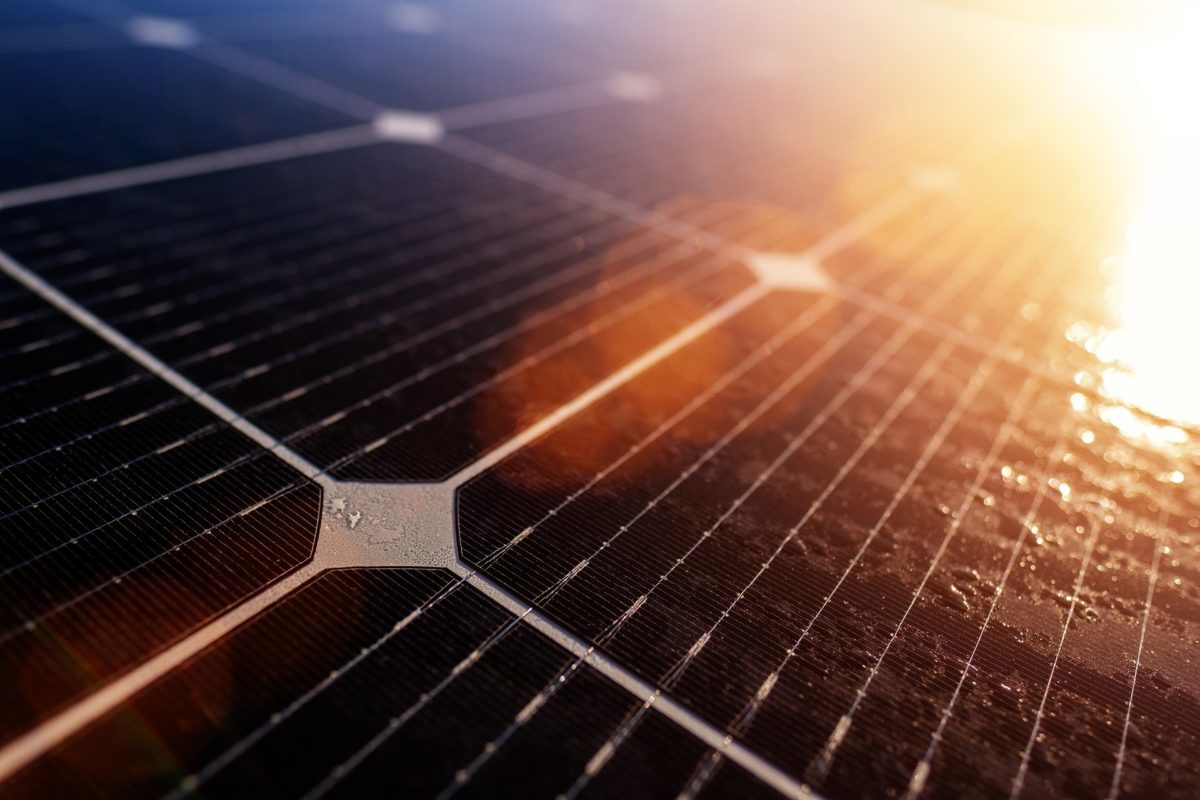National Solar Energy Federation of India has written to the Solar Energy Corporation of India to incorporate a clarification in the bid documents of upcoming tenders that “any applicability of basic customs duty and/or safeguard duty, beyond July 29, 2020 shall be considered as a “Change in Law” event.”
The appeal comes after the Ministry of Finance issued a notification on February, 1 2020 that enables a basic customs duty of 20% on solar cells and modules. Currently, these items attract zero duty as per the basic customs duty exemption notification 24/2005, dated March 1, 2005.
Further, solar cells and modules imported from China and Malaysia attract a safeguard duty of 15% till July 29, 2020.
NSEFI observed that “from July 30, 2020 onwards, unless the earlier notification 24/2005 is amended to exclude the solar cells and modules from customs duty exemption, these items will continue to have zero basic custom duty and safeguard duty.”
“With this understanding, developers will be participating in upcoming bid considering 0% basic custom duty and safeguard duty as modules are likely to be imported post July 30, 2020,” it wrote to SECI.
Accordingly, NSEFI has requested SECI to incorporate a clarification in the bid documents of upcoming tenders including Power Sale Agreement (PSA) that “Any applicability of basic customs duty and/or safeguard duty, beyond July, 29 2020 shall be considered as a “Change in Law” event and SECI shall expeditiously process the claim of the developers.”
NSEFI’s take on other budget components
In budget 2020-21 the focus is once again on tapping solar power for agriculture and lowering expenses of Indian Railways, in addition to DISCOM reforms.
As the Indian Railways aims for electrification of 27000 km of tracks, setting up a large solar power capacity alongside the rail tracks, on the land owned by the railways, is proposed for cost optimisation.
“This [move] has the potential to give boost to the MSME players who will be able to deliver services at the local places,” NSEFI Chairman Pranav R. Mehta told pv magazine.
For farmers the budget proposes expansion of PM-KUSUM—an innovative scheme that removes farmers’ dependence on diesel and kerosene by linking pump sets to solar energy.
The proposal is to expand the scheme to provide 2 million farmers for setting up standalone solar pumps, and help another 1.5 million farmers solarise their grid-connected pump sets.
“In addition, a scheme to enable farmers to set up solar power generation capacity on their fallow/barren lands and to sell it to the grid would be operationalized. Solar energy production in non-cropping season will be added”—announced the minister.
NSEFI—a strong proponent of solarization of agricultural pumps for over 12 years—has hailed the decision to reinforce the PM KUSUM scheme with 2 million off-grid and 1.5 million on-grid solar pumps.
“Government’s emphasis on using barren or fallow land for solar plants is also appreciated as NSEFI along with Indo-German Energy Forum (IGEF) is emphasizing on proposing standards for agri-PV plants which will aim at addressing both the targets of government of India, doubling the farmers’ income as well as 100 GW of solar target by 2022,” said NSEFI chairman Pranav R. Mehta.
However, as India has only around 3 GW of solar cell output annually—and most companies are only engaged in module assembly—Mehta expressed concern that the provision of using only domestic made cells in this scheme might be a deal breaker due to lack of adequate infrastructure.
This content is protected by copyright and may not be reused. If you want to cooperate with us and would like to reuse some of our content, please contact: editors@pv-magazine.com.









2 comments
By submitting this form you agree to pv magazine using your data for the purposes of publishing your comment.
Your personal data will only be disclosed or otherwise transmitted to third parties for the purposes of spam filtering or if this is necessary for technical maintenance of the website. Any other transfer to third parties will not take place unless this is justified on the basis of applicable data protection regulations or if pv magazine is legally obliged to do so.
You may revoke this consent at any time with effect for the future, in which case your personal data will be deleted immediately. Otherwise, your data will be deleted if pv magazine has processed your request or the purpose of data storage is fulfilled.
Further information on data privacy can be found in our Data Protection Policy.